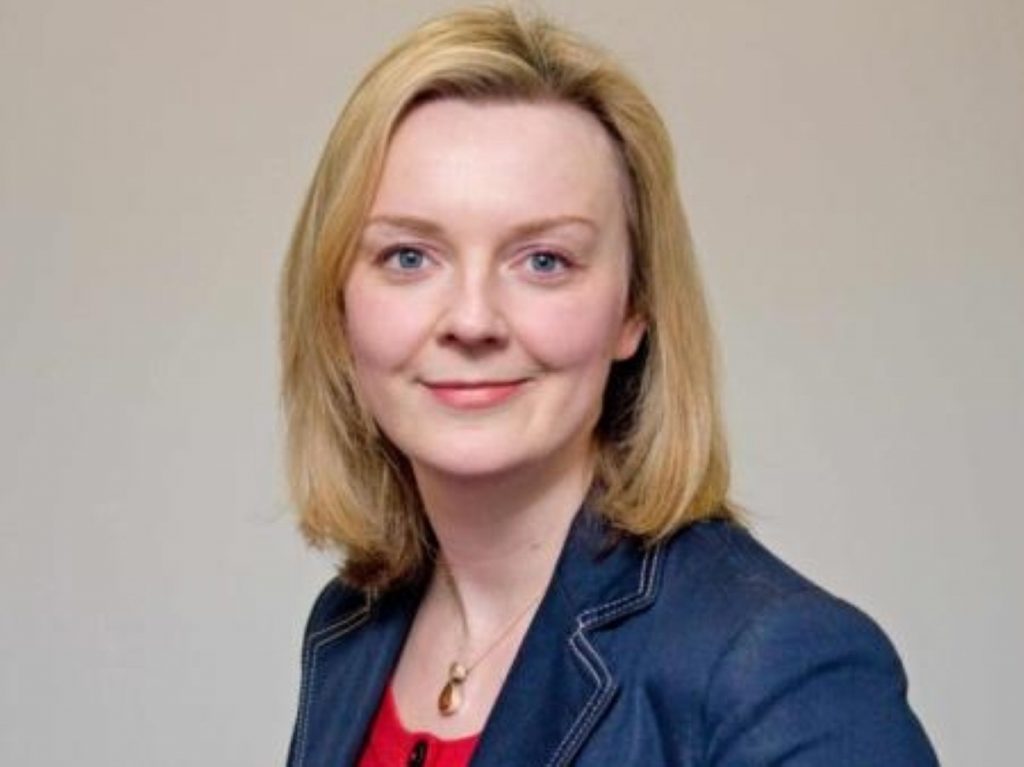Interview: Elizabeth Truss
Elizabeth Truss has finally found her place in politics. After a scenic tour of political ideology that took in the Campaign for Nuclear Disarmament (CND) and the Liberal Democrats, the new MP has at long last won herself the safe seat of Norfolk South West – as a Conservative.
By Rebecca Burns
“I was a child politician,” the blonde, friendly-faced MP smiles. Truss grew up in left-wing Leeds and was just 25 when she first stood for parliament on behalf of the Conservatives. Her father is an academic and university lecturer in mathematics so “you know the kind of circles we moved in”, she says, referring to the left-leaning academia of the 1980s. “My mum was a member of the CND and I have memories of going on marches with her when I was a child, so I suppose I had an awareness of and an interest in politics from quite an early age”.
Truss’ background is littered with trials and rejections of political parties. Nor is this her first stab at entering Westminster. The constituency of Norfolk South West proved third time lucky for her after failed attempts in Hemsworth in 2001 and Calder Valley in 2005. Truss says her earlier campaigns were an indulgence of her political “hobby” and gave her the “chance to experiment a bit”. She is referring to campaign tactics but, before her three Conservative campaigns, this experimentation extends to her political encounters as well.


Her rebellious political radar appears to have taken shape extremely early indeed. At her Leeds comprehensive, disagreeing with left-wing teachers was one of the reasons she eventually found herself representing the Conservatives. “Most of my teachers were quite left wing and I got quite frustrated with the political correctness and lack of academic rigour. I think it was the frustration with that that started me in the direction towards the Conservative party.”
It took more than one step to get there. Following the early repulsion from her Labour roots, Truss enthusiastically adopted Liberal Democrat yellow. At the age of 17 she became a card-carrying member and went on to preside over the party society at her university, Oxford. One fellow member fondly recalls her as “a complete and utter egomaniac pain in the backside, incapable of working in a team.” This could be a job description for an MP, so I am surprised it took her ten years’ work in business to finally make it to Westminster.
Truss blames her background for taking so long to find her true political feet. She says Conservatives were a rare breed among her acquaintances until she met other like-minded people at university. But she doesn’t begrudge her early political experience. “I’m a campaigner,” she explains. “I enjoy getting things done and I think you can learn that, you can see that happening whatever the political perspective.” Nevertheless, she says the family dinner table was never short on heated political debate.
In keeping with the theme of accord, there is one area in which she and her father do see eye-to-eye: the importance of a rigorous education. Wouldn’t all parties say that, I counter? Truss illustrates by pointing out Labour’s decision to change the name of the Department of Education to the Department of Children, Families and Schools. It began to focus on “other targets like healthy eating or being caring” and although she doesn’t dispute the importance of these things, Truss disputes government’s role in instituting them. “It took the focus away from what I think the purpose of the education system is which, I think, is to pass knowledge on from one generation to the next.” Labour “took responsibilities away from communities and families”. Truss feels that had a detrimental, disempowering effect and is putting herself forward for the education select committee to try and make a difference.
She lists the views she feels ultimately qualify her as a Conservative. “I agree with them on economic policy and low taxation and a smaller state,” she explains, then quickly adds “I’m a Eurosceptic” as if to make sure I’m convinced of her Conservative credentials.
I’m not. Her broad-brush background and solid business experience have made her a more open-minded figure, ideally suited to the new Liberal Conservative coalition. Perhaps Truss needed three attempts at parliament to convince voters, her family and herself that she should be voted in as a true blue. But it seems this Tory backbencher is more comfortable with the LibCon coalition than she realises.









